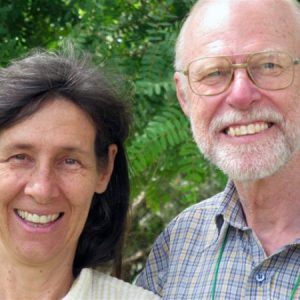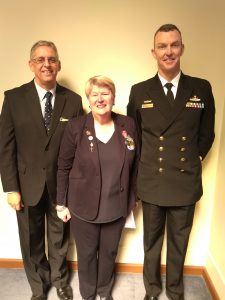There have been many occasions when the last words of people have been significant. That much is true for King David. In 2 Samuel 23:1-7, we have a record of David’s last words and they are words that carry much weight, not just because he was dying, but because they came to him from the Lord. Because that is so, these words of David take on a new perspective and point us beyond David to something greater in the plan of God that includes all of His people.
Author: Philip
Playgroups and Sunday School Celebration service
 It’s getting close to be that time of the year again! No…not Christmas…(well not just yet anyway), but it’s almost time for our annual Playgroups and Sunday School celebration service on Sunday November 25th @10:30am with a shared lunch to follow… Word is out that ‘Hot Dog’ is planning to be there too! Come and join us!
It’s getting close to be that time of the year again! No…not Christmas…(well not just yet anyway), but it’s almost time for our annual Playgroups and Sunday School celebration service on Sunday November 25th @10:30am with a shared lunch to follow… Word is out that ‘Hot Dog’ is planning to be there too! Come and join us!
‘The king’s song of songs’ (2 Samuel 22:1-51)
It is well known that King David was a prolific song writer. 2 Samuel 22:1-51 is one of his compositions, pretty much identical to what is recorded in Psalm 18. We can read David’s song as a testimony to the strong and abiding grace of God toward him, but also as a forerunner and pointer to the grace of His greater Son, Jesus, who would come and show grace to the extreme, not just to David but to all His people.
‘The king’s battles and the King’s victory’ (2 Samuel 21:5-22)
There’s no question that 2 Samuel 21:15-22 is an unusual passage. It recounts the stories of 4 battles that David and his men found themselves in – all against formidable foes, some descended from the giants and some even with six fingers and toes on their hands and feet! The battles make intersting reading, but so do the lessons that ultimately flow from the text which once again points us to Jesus as our Mighty King who fought the ultimate battle and won!
Visit by Rhys & Rhondda Hall
 Based in Uganda, Rhys & Rhondda Hall are long term Australian missionaries who serve with Pioneers and APWM providing a vital radio and literature ministry to the war-torn people of South Sudan.
Based in Uganda, Rhys & Rhondda Hall are long term Australian missionaries who serve with Pioneers and APWM providing a vital radio and literature ministry to the war-torn people of South Sudan.
We are looking forward to their visit to some of the St John’s ministries on Saturday November 17th in the following ways; Rhys will be speaking at the Men’s Fellowship at 8am. Breakfast will be served for $5 and an RSVP is required to bendigopc@gmail.com and Rhondda will be speaking to the Ladies’ Fellowship at 10:30am over morning tea. Ladies, a plate please.
Come and hear the latest! There will be an offering for the Hall’s support at both meetings. Contact us for further details.
‘The king’s promise and a mother’s pain’ (2 Samuel 21:1-14)
This part of God’s Word, 2 Samuel 21:1-14, would have to be one of the saddest parts of Scripture. Although it is not quite clear when this actual event occured (as these latter chapters of 2 Samuel seem not to be in chronological order), it still is instructive for us. While the king made good the promise that brought an end to the nations’ drought, the price tag was very high as seven of the family of Saul were hanged. Rizpah’s grief and pain were all too real. Another mother knew that pain. Her name was Mary and her son was Jesus! He too was strung up, but not for his sins, but ours.
‘The power of the Spirit’ (1 Corinthians 2:1-16, Rev Dr Peter Adam)
Message #2 from Rev Dr Peter Adam at the Gospel Coalition combined churches of Bendigo event.
‘The power of the Gospel’ (1 Corinthians 1:18-31, Rev Dr Peter Adam)
Message #1 from Rev Dr Peter Adam at the Gospel Coalition combined churches of Bendigo event.
Annual Naval Service
 We held our Annual Naval Service at St John’s today (Trafalgar Day) with Captain Mike Oborn, Commanding Officer of HMAS Cerberus as our guest and guest preacher. (You can hear his message here!)
We held our Annual Naval Service at St John’s today (Trafalgar Day) with Captain Mike Oborn, Commanding Officer of HMAS Cerberus as our guest and guest preacher. (You can hear his message here!)
We are so grateful to Mike for generously giving up his time to make this return visit to St John’s, having preached at our Naval Services in 2013 and then again in 2014. Thank you Mike and may God bless you in your important leadership role in the RAN.
Pictured above (L-R) are Rev Philip Burns, Christine Clifford (Acting President of the Bendigo Ex-Navalmen’s Club) and Captain Mike Oborn.
‘From fear to faith’ (Captain Mike Oborn, Matthew 14:22-33)
When Jesus came walking to the disciples across the sea in Matthew 14:22-33, they cried out in fear at first, but soon confessed that Jesus was the ‘Son of God’. In so many of our trials and in so much of life we have to face fears of many kinds, but God’s purpose is to se these things to come to trust Him with our whole heart.